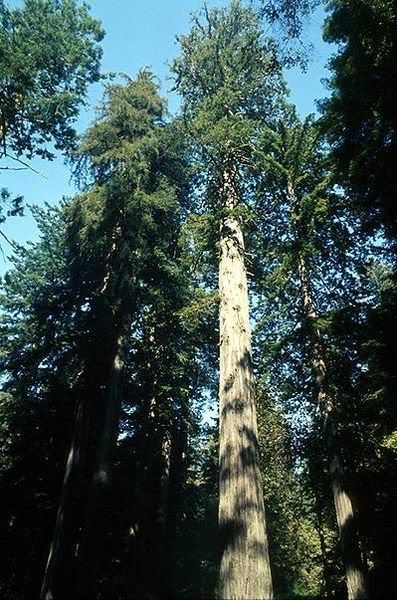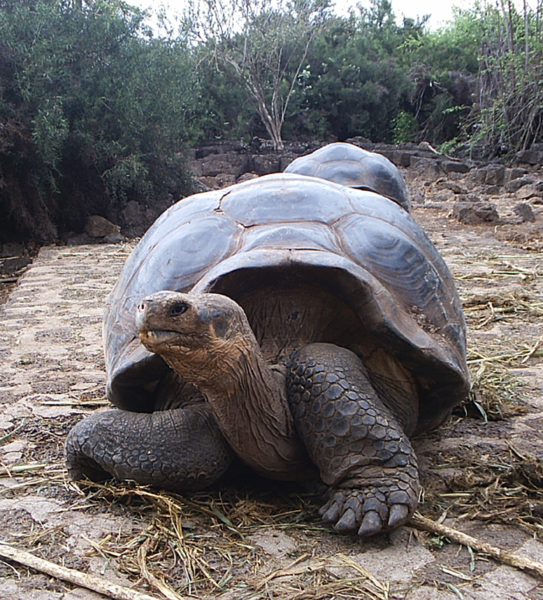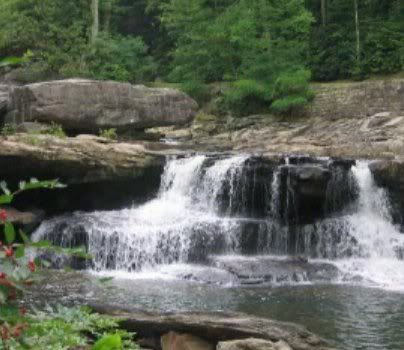Cross-posted at The Environmentalist (published at Reuters via The Environmentalist) and Daily Kos.
 Next week Ecuador votes on providing constitutional rights to rivers, tropical forests, islands and air. Polls now show that 56% support and only 23% oppose a bill of rights for nature, similar to legal rights provided to people. This bill of rights would change the legal status of natural resources from property to a “right-bearing entity.”
Next week Ecuador votes on providing constitutional rights to rivers, tropical forests, islands and air. Polls now show that 56% support and only 23% oppose a bill of rights for nature, similar to legal rights provided to people. This bill of rights would change the legal status of natural resources from property to a “right-bearing entity.”
Ecuador is taking this approach to protect its people from the health care problems caused by pollution when multinational corporations swoop into their country to grab their natural resources, leaving behind damaged and polluted environments for the country to clean-up. This approach would also expedite lawsuits to protect both the environment and people while obtaining damages to pay for clean-ups.
The proposed constitutional clauses acknowledge rights possessed by nature or “Pachamama,” a “goddess revered by indigenous Andean peoples” and would provide that:
“Natural communities and ecosystems possess the unalienable right to exist, flourish and evolve within Ecuador. Those rights shall be self-executing, and it shall be the duty and right of all Ecuadorian governments, communities, and individuals to enforce those rights.”
Now, before you think how crazy to give legal rights to nonhumans, consider how the US provides legal rights to corporate entities:
But Ecuador is not the first country to propose granting rights to nonhuman entities: Many countries, including the United States, have long held that corporations possess many of the same rights – such as the rights to free expression and to due process – that human beings have. And in June, Spain’s parliament approved a measure to extend some human rights to nonhuman apes.
A US lawyer helped develop this new framework in Ecuador because our existing model of a regulatory system where government is supposed to protect our environment in a permit system that first evaluates and mitigates environmental impacts has simply not worked.
 In Bridge at the Edge of the World: Capitalism, the Environment, and Crossing from Crisis to Sustainability, James Gustave Speth points out the paradox that for the past 40 years environmentalists have “grown in strength and sophistication,” yet we now have an environment that faces a calamity on all sides: We have lost half of our world forests, 90% of large ocean fish, 20% of coral, 1/3 of wetlands, ½ of mangroves, and every year an area the size of Nebraska is lost to desertification, species are lost at a rate of 1,000 times the natural rate of extinction, and we keep losing ice and glaciers to climate change while “persistent toxic chemicals can now be found by the dozens in . . . every one of us.”
In Bridge at the Edge of the World: Capitalism, the Environment, and Crossing from Crisis to Sustainability, James Gustave Speth points out the paradox that for the past 40 years environmentalists have “grown in strength and sophistication,” yet we now have an environment that faces a calamity on all sides: We have lost half of our world forests, 90% of large ocean fish, 20% of coral, 1/3 of wetlands, ½ of mangroves, and every year an area the size of Nebraska is lost to desertification, species are lost at a rate of 1,000 times the natural rate of extinction, and we keep losing ice and glaciers to climate change while “persistent toxic chemicals can now be found by the dozens in . . . every one of us.”
The objective of the new nature bill of rights is to codify a sustainable development by allowing communities, elected officials and individuals to file lawsuits to obtain damages to our ecosystem:
“In the same way, compensation is measured in terms of that injury to a person or people. Under the new system, it will be measured according to damage to the ecosystem. The new system is, in essence, an attempt to codify sustainable development. The new laws would grant people the right to sue on behalf of an ecosystem, even if not actually injured themselves.”
 Under existing laws, people generally need to provide evidence of personal injury flowing from the environmental damage in order to have standing to file a lawsuit.
Under existing laws, people generally need to provide evidence of personal injury flowing from the environmental damage in order to have standing to file a lawsuit.
This can be extremely difficult. To provide a conclusive link, say, between a cancer and polluted drinking water is, legally speaking, virtually impossible.
Ecuador is ready to try this new approach because it is fed up with foreign multinational corporations invading their country to rape their natural resources, leaving behind poverty, pollution and damaged or destroyed ecosystems. Providing legal rights to natural resources may not only protect their environment, but reduce government expenses litigating the corporate invaders:
Now it is in the grip of a bitter lawsuit against US oil giant Chevron, formerly Texaco, over its alleged dumping of billions of gallons of crude oil and toxic waste waters into the Amazonian jungle over two decades.
It is described as the Amazonian Chernobyl, and 30,000 local people claim that up to 18m tonnes of oil was dumped into unlined pits over two decades, in defiance of international guidelines, and contaminating groundwater over an area of some 1,700 hectares (4,200 acres) and leading to a plethora of serious health problems for anyone living in the area. Chevron has denied the allegations. In April, a court-appointed expert announced in a report that, should Chevron lose, it would have to pay up to $16bn (£8.9bn) in damages.
Chevron, which claims its responsibilities were absolved in 1992 when it handed over its operations in Ecuador to the state-owned extraction company, Petroecuador, immediately set about discrediting the report. A verdict on the case is still thought to be a long way off, and Ecuador’s government could face US trade sanctions for its refusal to “kill” the case.
This movement to grant legal rights to nature did not start in Ecuador. Years ago, in the US, cities and towns used a similar approach to ban coal mines, incinerators and factory farms:
Aided by the Community Environmental Legal Defense Fund in Pennsylvania, about a dozen municipalities have abandoned the old-fashioned way of halting development — through the appeals process — and are placing outright bans on environmentally disruptive activities.
For example, in Pennsylvania, Southampton prohibits corporate ownership of farms, and Wayne passed an ordinance that gives the town the power to keep out corporations with criminal histories. The Defense Fund gets much of the credit (or the blame) for these decidedly anti-business, grass-roots efforts. It even offers ready-made ordinances to protect ecosystems. Ecuadorean officials called the group when they were crafting the new constitution, and now it’s fielding calls from Australia, Italy, South Africa and Nepal, which is writing its first constitution.
Given the failures inherent in our own system to protect our environment and natural resources, it is good to see attempts to use new, creative approaches.

20 comments
Skip to comment form
Author
to be able to sue corporations and our government for destroying our environment which would then provide deterrence in the future to protect our natural resources!
What a fantastic idea! At least give her equal personhood to corporations. She should have no problem finding pro bono legal representation at least as powerful as some corporations use.
source
I think this is a great step, but I keep thinking of the playground taunt — “yeah, and whose army?”
Corporations and some people even have the means to provide for their legal defense, without some kind of funding legal defense for natural entities does this kind of legislation become toothless?
Ecuador’s left-leaning government now supports it and will likely use the the change in law to defend the environment, but what if the ring wing takes power? Is Ecuador back in the same boat the U.S. is in when today’s Republicans take over?
Ultimately, I think it comes down to what people value. As long as people value growth and money more than clean water, clear skies, healthy ecosystems, and biodiversity, then defending the land and air and water that supports us is at a disadvantage to those who see nature as something to exploit rather than sustain.
In the Andes, Pachamama is mother earth, santa tierra, a holy being. Pachamama is seen as alive and carrying humankind on her belly. She supports humankind, feeds us, gives us shelter, and carries the oceans (mamakocha). She is seen as the deep feminine mystery. Calling her a “goddess” (as the Wiki does) imo sells her a bit short. Maybe it’s better to say that Pachamama personifies the earth as a sacred being…
Patriot Daily thanks for this refreshing diary. I took part a Daniel Penock Democracy School. The teachers were Thomas Linzey and Richard Grossman. Give a try someday.Their organization is the Community Environmental Legal Defense Fund. Go take a look.
what a fascinating concept!!!
I have mentioned several times here that I find great cause for hope in the developments happening in Latin America. And while they don’t get as much attention in this country – President Correa and the people of Ecuador are leading the way in many arenas.
If it comes to war between the men and the bears, (and Trees, Air & Water!) I am on the side of the bears, trees, air and water!